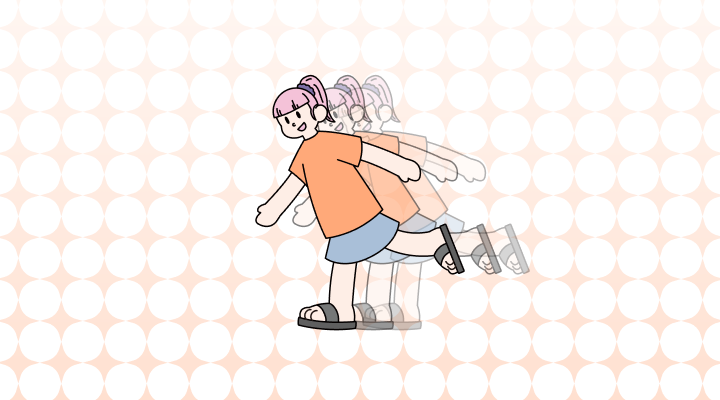- "Whent" is an incorrect spelling of the word "went."
- "Went" is the past tense of the verb "go," indicating movement or travel from one place to another.
❌ She whent to the store to buy groceries.
✅ She went to the store to buy groceries.
In this sentence, "went" signifies the action of traveling or moving towards the store.
What does "went" mean?
"Went," straightforward and simple, is the past tense of the verb "go." It describes an action completed in the past: someone or something moved from one place to another. Here's the breakdown:
Function: Past tense verb
Meaning: Moved from one location to another at a previous time.
Examples:
- She went to the store yesterday. (action completed in the past)
- The train went through a tunnel. (movement from one place to another)
- The lights went out during the storm. (change of state, often implying movement)
Additional notes:
- "Went" can be used with various auxiliary verbs to form different grammatical tenses: "has gone," "had gone," "will go," and so on.
- Occasionally, "went" can be used as a noun in informal contexts, referring to a trip or journey ("He took a long went to the mountains").
- While "went" typically implies physical movement, it can also be used figuratively for non-physical transitions ("His mood went from anger to disappointment").

The use of "went" and "whent" over time
The Ngram graph below shows how often "ment" and "meant" have been used from the 1800s to the 2000s. "Went" has seen steady use until sharply increasing in the 2000s, while its misspelling "whent" has seen nearly zero use.

How to pronounce "went"
In both British and American English, "went" is pronounced like "went", rhyming with "tent".
This is just the standard pronunciation, and there may be slight variations depending on regional accents and individual speech patterns.
Why would we misspell "went" as "whent"?
- Phonetic confusion: The pronunciation of "went" might lead someone to believe that it should be spelled with an "h" after the "w" to emphasize the sound, especially if they rely on phonetic spelling.
- Pattern recognition: Individuals might associate "wh" with a questioning or emphasizing sound, like in "what" or "where," leading them to include it in "went" as a perceived reinforcement of the action.
Other common misspellings of "went"
- Wnet
- Weent
- Wen't
- Wint
- Wen
Example sentences of the misspelling of "went" as "whent"
- "Whent" is not a valid spelling for the past tense of "go"; the correct form is "went."
- Using "whent" instead of "went" is a clear misspelling in English.
- The proper spelling is "went," and "whent" is an incorrect variation.
- It's essential to recognize that "whent" is not an acceptable way to spell the past tense of "go."
- Any use of "whent" in written communication would be considered a spelling error.
Example sentences of "went"
- Yesterday, they went for a long walk in the park.
- She went to the library to borrow some books for her research.
- We went on a road trip last summer and visited many interesting places.
- After the movie, they went out for dinner at their favorite restaurant.
- He went to bed early to get enough rest for the busy day ahead.
- The train went through picturesque landscapes on its journey.
- The children went to bed eagerly, excited about the upcoming day.
- Despite the rain, they went ahead with their outdoor picnic plans.
- The team went over the game strategy before the important match.
- She went through old photo albums, reminiscing about her childhood.
🖊️ Whack or Wack or Whacked or Wacked: Which is Correct?
🖊️ Whitch or Witch: Which is Correct?
Synonyms for "went"
- Traveled
- Moved
- Departed
- Journeyed
- Advanced

Want to sound like a native speaker?
Engram’s AI-powered grammar checker makes your English sound like a native speaker’s, suggesting natural English expressions on top of fixing grammar, spelling, punctuation, word order, and vocabulary.

References:














